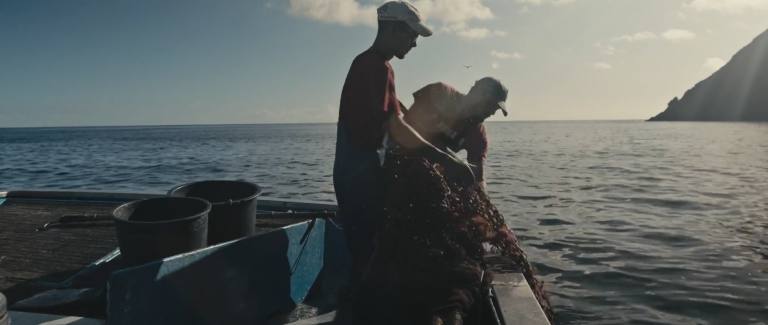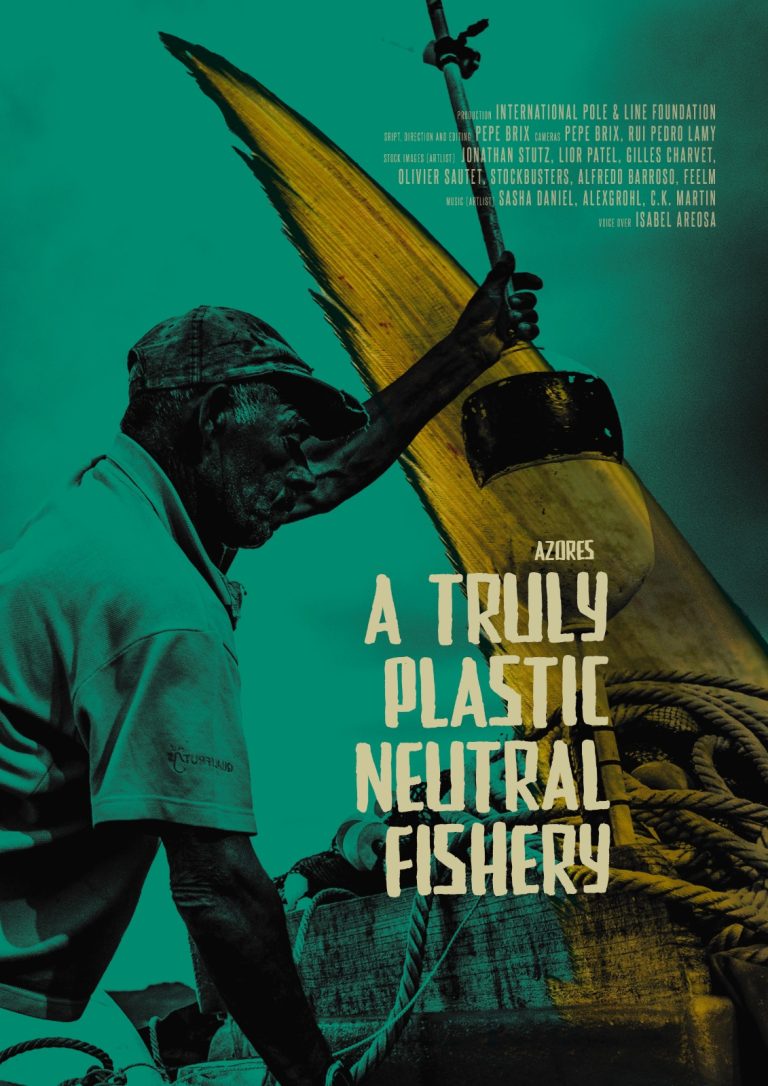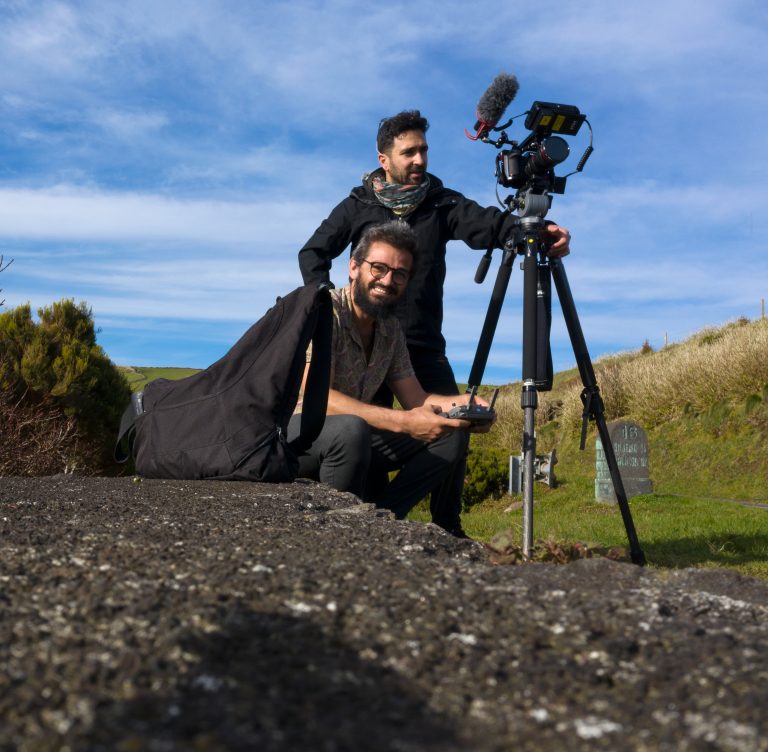A Truly Plastic-Neutral Fishery, crafted after three years of the Ghost Gear Removal Competition in the Azores, in which artisanal fishers remove ocean plastics, is a film that captures the essence of sustainability and the Azores as a beacon of hope in a world seeking solutions for a healthier, plastic-free ocean.

A Truly Plastic-Neutral Fishery tells the inspiring journey of the Azorean Fleet as they redefine responsible tuna fishing. Against the backdrop of a world grappling with plastic pollution and overfishing, the International Pole and Line Foundation (IPNLF) partnered with award-winning National Geographic photographer Pepe Brix to develop the film, which explores the innovative methods of the Azores pole-and-line fleet fishers and their commitment to becoming the world’s first plastic-neutral fishery.
As the narrative unfolds, the documentary illuminates the environmental threats of industrial fishing practices and challenges viewers to make conscious choices for a sustainable future. Can the Azores be a beacon of hope in a world where we choose between responsible and destructive fishing practices?

In the wake of three successful years of hosting the Ghost Gear Removal Competitions, the International Pole and Line Foundation (IPNLF), together with renowned videographer Pepe Brix, debuted its film “A Truly Plastic-Neutral Fishery” at the Pacific Whale Foundation’s 8th Annual World Whale Film Festival, an event dedicated to celebrating marine conservation efforts and Indigenous ecological knowledge.
The film highlights the pressing concerns surrounding plastic pollution in our oceans; it underscores the Azores pole-and-line fishery’s commitment to sustainability and quality by becoming the world’s first “plastic-neutral” fishery, aiming to hold the fishing industry accountable for its contribution to ocean plastic pollution.
Since its premiere in Hawai’i, ‘A Truly Plastic-Neutral Fishery’ has been shown at the international film festivals Ocean Films Húsavík (Iceland), BABUL ECO FILM FESTIVAL (India), Vision 2030 (Italy), Cinemar 2025 (USA and Portugal), and Cimasub 2024 (San Sebastian). It won the Environmental Awareness Award for the most awareness-raising work at the San Sebastian international film festival.
Taking the World Stage
The escalating global concern over oceanic plastic pollution prompts a call to action. Coastal areas, including the Azores, grapple with plastic waste (plastic bottles, packaging, and ALDFG), adversely affecting endangered species and ecosystems. Despite local communities not being primary contributors to this issue, they bear the brunt of plastic infiltration, particularly on small islands. We believe everyone should see this film and think about the effect large-scale industrial fishing vessels have on our oceans, as opposed to artisanal fisheries whose livelihoods depend on the sea that catches in balance with nature.
We would love it if you would share our film and stories at your film festival, conference, or event! Don’t hesitate to contact us at press@ipnlf.org to discuss options.
Thank You
We would like to acknowledge and thank our partners of the ‘The Plastic Neutrality Project’, launched in collaboration with the Sea Observatory of the Azores (OMA), Programa de Observaçao para as Pescas dos Açores (POPA), IMAR, Associação de Produtores de Atum e Similares dos Açores (APASA), and Federação das Pescas dos Açores (FPA).
We would like to acknowledge and thank Fish4ever and Biocoop France for their financial support, commitment to the Azores fishery, and responsible, ethical sourcing practices.

“I grew up surrounded by fishers and A Truly Plastic-Natural Fishery, as well as the Tuna Tales I created for IPNLF before this film, allowed me to, somehow, be part of a change that I know has to come. I dove deep into the problems around the fishing industry and listened to the voices of those who feel it directly. When listening to their stories you are left with no doubt that fishing is crucial for their survival. For example, in Cape Verde they need to take more and more risks as they are forced to go far out at sea to catch half of what they used to catch close to the shore. A Truly Platic-Neutral Fishery has been more than a photographic or videographic project, it has been a very strong introspective journey for Lamy and I, and we keep, printed on our hearts, each word spoken from these men and women.”
– Pepe Brix, A Truly Plastic-Neutral Fishery